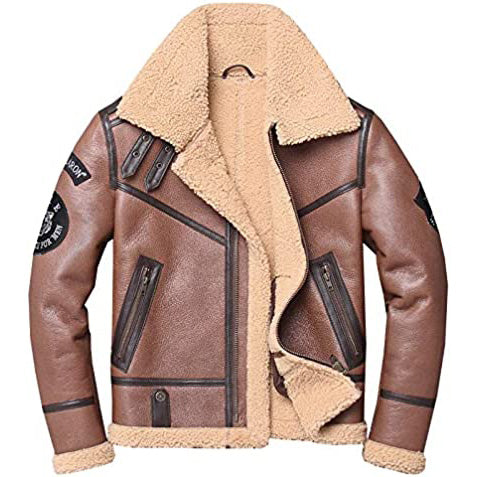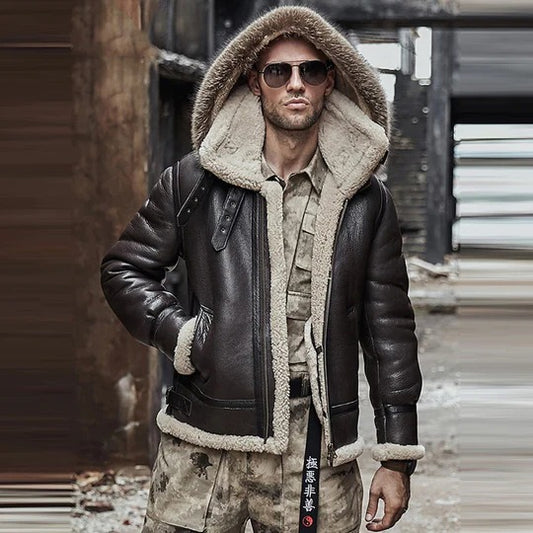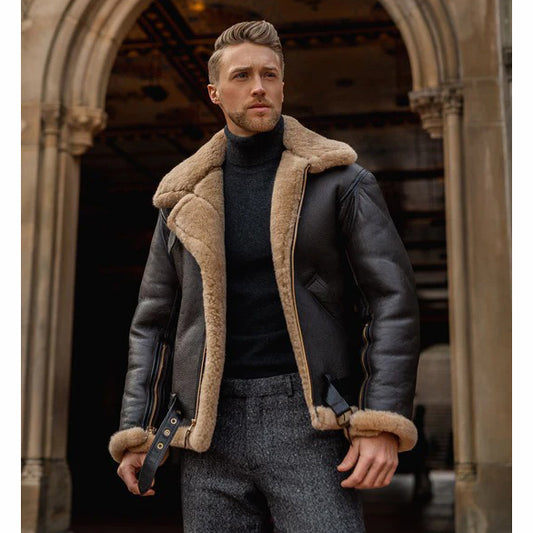Exotic leather has been a popular choice for luxury fashion items, adding a unique touch of sophistication and elegance. From high-end fashion houses to bespoke accessory makers, exotic leather has made its mark globally due to its distinct textures, patterns, and rarity. But what exactly is exotic leather, and what makes it so special? In this comprehensive guide, we’ll delve into the world of exotic leathers, their types, uses, and care tips, helping you make informed purchasing decisions.
What is Exotic Leather?
Exotic leather refers to leather made from uncommon and non-traditional animal hides. Unlike regular leather, which typically comes from cows or sheep, exotic leather is sourced from animals like alligators, ostriches, snakes, and stingrays. Due to the rarity and unique characteristics of these hides, exotic leather is often considered a symbol of luxury and is used in high-end fashion products like bags, belts, shoes, and jackets.
Why is Exotic Leather Considered Luxury?
Exotic leather stands out for its distinctive textures, patterns, and durability. Each type of exotic leather offers something unique, making it sought after by designers and consumers who want exclusive, one-of-a-kind fashion pieces. The rarity of the source animals and the complex tanning process required to treat exotic leather further add to its luxurious reputation.
Types of Exotic Leather
1. Alligator and Crocodile Leather
Alligator and crocodile leather are some of the most prized exotic leathers. Known for their intricate scale patterns and glossy finish, they are commonly used in luxury handbags, wallets, and shoes. The hide of these reptiles is thick and durable, making it a popular choice for high-end products that need to withstand daily wear and tear.
Pros:
- Extremely durable and long-lasting
- Unique scale pattern; no two pieces are alike
- Popular in luxury fashion brands
Cons:
- High cost due to rarity and processing
- Requires specific care to maintain its glossy finish
2. Python and Snake Leather
Python leather is famous for its smooth texture and striking patterns. With natural color variations, python leather has become synonymous with luxury. This leather is lighter and more flexible compared to other exotic leathers, making it ideal for items like wallets, belts, and footwear.
Pros:
- Lightweight and flexible
- Distinctive patterns with natural color variations
- Easy to dye for different fashion needs
Cons:
- Less durable than crocodile leather
- Requires extra care to avoid cracking or drying out
3. Ostrich Leather
Known for its plump, bumpy texture, ostrich leather is soft yet durable. It is recognizable due to its "goosebump" appearance caused by the feather follicles in the skin. This leather is commonly used in luxury handbags, belts, and wallets.
Pros:
- Soft and flexible
- High natural oil content, making it more resistant to drying out
- Unique, attractive texture
Cons:
- Expensive due to limited supply
- Requires special cleaning products for maintenance
4. Stingray Leather
Stingray leather is known for its durability and resistance to water. Its pebble-like surface and glossy finish make it a favorite for luxury accessories like wallets, watch straps, and belts. Stingray leather is one of the toughest exotic leathers available, offering exceptional longevity.
Pros:
- Highly durable and water-resistant
- Exotic appearance with a pearly sheen
- Scratch-resistant
Cons:
- Tough surface makes it difficult to work with
- Limited in terms of flexibility and stretch
5. Lizard Leather
Lizard leather is thinner and more delicate compared to other exotic leathers but offers a refined and smooth appearance. It’s commonly used in small leather goods like wallets and watch straps due to its sleek texture.
Pros:
- Thin and lightweight
- Sleek, smooth appearance
- Perfect for small, detailed items
Cons:
- Less durable than alligator or crocodile leather
- Requires frequent maintenance to avoid cracking
Uses of Exotic Leather in Fashion
Exotic leather has found its place in many fashion items, thanks to its unique qualities:
- Handbags: Exotic leather handbags are a staple in luxury fashion, providing unmatched exclusivity and style.
- Footwear: Boots and shoes made from exotic leather are durable, stylish, and can last for years with proper care.
- Jackets: Exotic leather jackets, especially those from python or alligator skins, are rare and eye-catching, offering a premium look.
- Accessories: Wallets, belts, watch straps, and even phone cases are often made from exotic leather, offering a luxurious touch to everyday items.
Care Tips for Exotic Leather
Proper care is essential to maintaining the beauty and longevity of exotic leather. Here are some tips to keep your exotic leather items in top condition:
- Avoid direct sunlight: Prolonged exposure to sunlight can cause fading and drying out of exotic leather.
- Use specialized leather cleaners: Exotic leathers require specific cleaning products that are gentle and won't strip away their natural oils.
- Store properly: Keep your exotic leather items in a dust bag and store them in a cool, dry place to prevent damage.
- Moisturize regularly: Exotic leather needs regular moisturizing to avoid cracking or drying out. Use a conditioner recommended for the specific type of leather.
Pros and Cons of Exotic Leather
Pros:
- Unique and luxurious appearance
- Durable and long-lasting (depending on the type)
- Highly valued in luxury fashion markets
- Adds exclusivity to any wardrobe
Cons:
- Expensive due to rarity and processing techniques
- Requires specific care and maintenance
- Not as readily available as traditional leather
- Ethical concerns surrounding the sourcing of exotic skins
Occasions to Wear Exotic Leather
Exotic leather items are often worn during special occasions where elegance and style are paramount. Some occasions include:
- Formal Events: A python leather clutch or alligator shoes can elevate any formal attire.
- Business Meetings: Exotic leather accessories, like wallets or belts, add a sophisticated touch to a professional outfit.
- Casual Luxury: Even in more relaxed settings, such as dinner parties or upscale gatherings, exotic leather items can enhance a casual look with a hint of luxury.
Expert Opinion
Many leather experts and fashion designers agree that exotic leather remains a timeless material in the world of high fashion. According to Jackets Kingdom, while the demand for exotic leather is increasing, it's essential to purchase from ethical and sustainable sources. "We always recommend choosing brands that ensure the welfare of the animals and follow strict guidelines for sourcing exotic skins," says the Jackets Kingdom team. By investing in ethically sourced exotic leather, consumers can enjoy both luxury and peace of mind.
Personal Experience with Exotic Leather
Having worked in the fashion industry for years, I've come across numerous exotic leather products. My personal experience with python leather has been particularly rewarding. Not only did I appreciate its lightweight feel, but I also loved the way the natural patterns gave each item a unique touch. However, I did notice that python leather requires more care to prevent cracking over time, especially in humid environments. Investing in high-quality care products and proper storage methods can significantly prolong the life of exotic leather items.
Comparative Analysis: Exotic Leather vs. Traditional Leather
| Feature | Exotic Leather | Traditional Leather |
|---|---|---|
| Appearance | Unique textures and patterns | Smooth, uniform surface |
| Durability | High, depending on type (e.g., stingray, alligator) | Generally durable but varies by type |
| Cost | Expensive due to rarity | More affordable and widely available |
| Maintenance | Requires special care and products | Easier to maintain with standard leather care |
| Availability | Limited to specialized stores | Readily available worldwide |
Conclusion
Exotic leather is a premium choice for those seeking luxurious, unique fashion items that stand the test of time. While it may require more care and comes at a higher price, the exclusivity and elegance it offers are unmatched. Whether you're looking to invest in an exotic leather jacket or a chic handbag, always ensure that you're buying from reputable, ethical sources to enjoy both style and sustainability.
FAQs
1. What animals are commonly used for exotic leather?
Alligator, python, stingray, ostrich, and lizard are some of the most popular animals used for exotic leather.
2. Is exotic leather durable?
Yes, most exotic leathers, such as alligator and stingray, are known for their durability and long-lasting properties.
3. How should I care for my exotic leather products?
Avoid exposure to direct sunlight, use specialized leather cleaners, and store your items in a cool, dry place.
4. Why is exotic leather so expensive?
Exotic leather is costly due to the rarity of the animals, the complex tanning process, and the exclusivity of the material.
5. Is exotic leather ethical?
Ethical concerns surround exotic leather, but many brands now follow strict guidelines to ensure that the leather is sourced responsibly.
6. Can exotic leather be dyed in different colors?
Yes, exotic leather can be dyed in various colors, making it versatile for fashion applications.
7. What products are commonly made from exotic leather?
Common products include handbags, shoes, wallets, belts, and jackets.
8. How can I ensure my exotic leather purchase is ethical?
Look for certifications or brands that prioritize sustainability and follow strict sourcing guidelines for exotic skins.
By investing in exotic leather, you are not only purchasing a luxury item but also a piece of art that reflects craftsmanship and exclusivity. Jackets Kingdom offers a wide range of exotic leather products, each crafted with attention to detail and ethical sourcing. Explore our collection today for premium fashion choices that stand the test of time!




